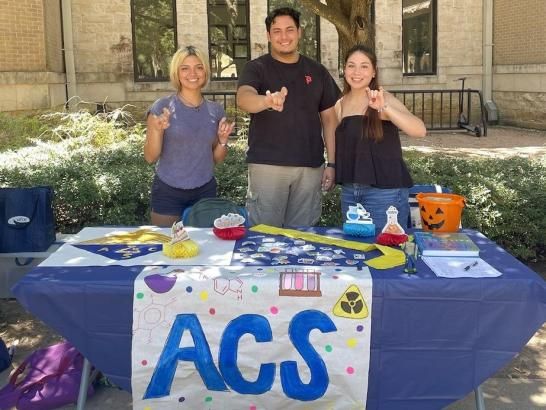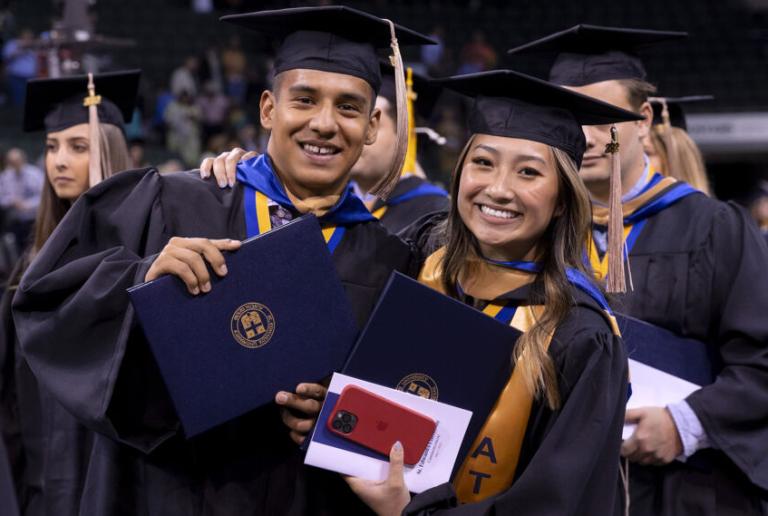Strengthen Your Quantitative Reasoning and Analytical Skills
Broadly defined, physics is the scientific study of how matter and energy interact. From quarks to cosmos, physics offers a portal into understanding how the world works at a fundamental level and a view of the frontier of the unanswered questions that remain.
Why study Physics at St. Edward's?
Studying physics enhances your skills in critical thinking, research and analysis, teamwork, and communication — valuable assets to any career. The Physics minor strengthens almost any degree you pursue, especially degrees in mathematics, computer science, biology, chemistry and engineering.
Hands-on learning and research opportunities
As a Physics minor, you will have the opportunity to carry out atmospheric science research with a faculty mentor. You’ll work together to collect and analyze measurements from balloon-borne instruments and ground-based spectrometers to help inform what factors are affecting air pollution.
Attend interactive conferences and fairs
In the University Physics sequence of courses, students work in teams to complete projects and show their work at a culminating project fair. Students interested in physics can also attend and present their research at a conference.
Explore Details About a Minor in Physics
Required Courses (8 hours)
- University Physics I, Lab
- University Physics II, Lab
Electives (10 hours total)
- Physical Chemistry I
- Physical Chemistry I, Lab
- Physical Chemistry II
- Numerical and Scientific Methods
- Special Topics in Physics
- Independent Study In Physics
- Research in Physics
Total Hours: 18
For more details and course descriptions for the Physics Minor, view the current Undergraduate Bulletin (PDF).
What You Will Learn
The Physics minor offers students the opportunity to study quantum mechanics, thermodynamics and more advanced computational approaches to modeling scientific phenomena. The minor’s introductory physics sequence consists of two courses that involve studying mechanics, as well as electricity and magnetism, both of which incorporate an introduction to programming using VPython.
A few examples of courses students in this minor take:
- University Physics I – Topics include fundamentals of classical mechanics. Primarily for science or pre-engineering students. Calculus is used in derivations and problem-solving.
- Mechanics and Waves Lab – Experiments in mechanics and waves. Includes experience with computer-assisted data recording, analysis and graphing, basic considerations of experimental design, and introduction to report writing.
Research and Presentations
In the Physics minor, you and your classmates will have the opportunity to carry out atmospheric science research with a faculty mentor. You’ll work together to collect and analyze measurements from balloon-borne instruments and ground-based spectrometers to help inform what factors are affecting air pollution.
In the University Physics sequence of courses, students work in teams to complete projects and show their work at a culminating project fair. Students interested in physics can also attend and present their research at a conference.
Students are invited to join the Physics Club, which in addition to various activities, helps prepare students for the different opportunities available to students studying physics.




